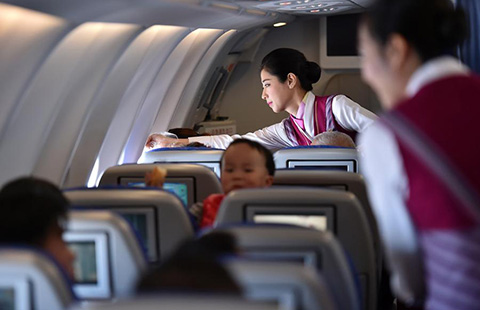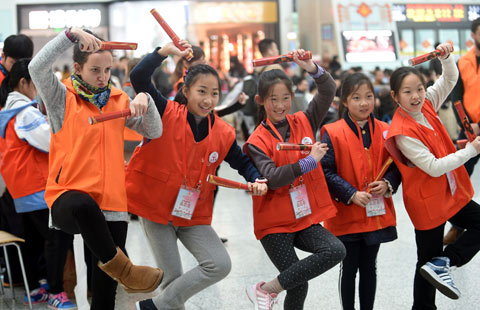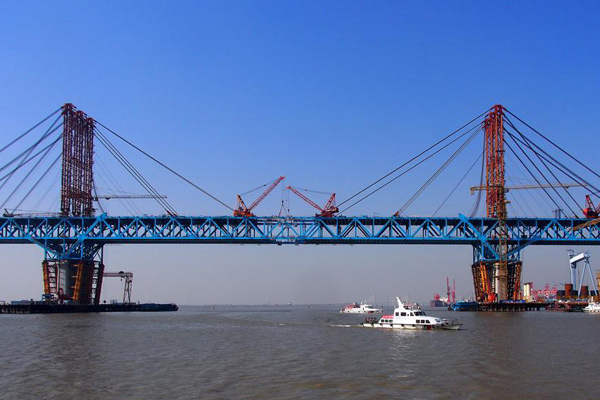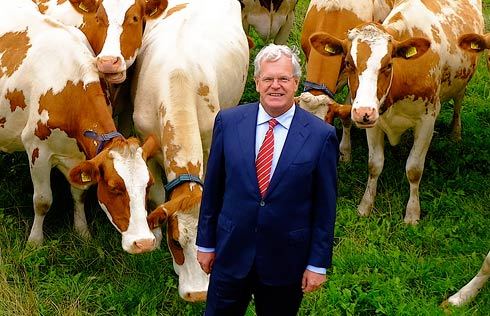A droid to do your laundry, for a price
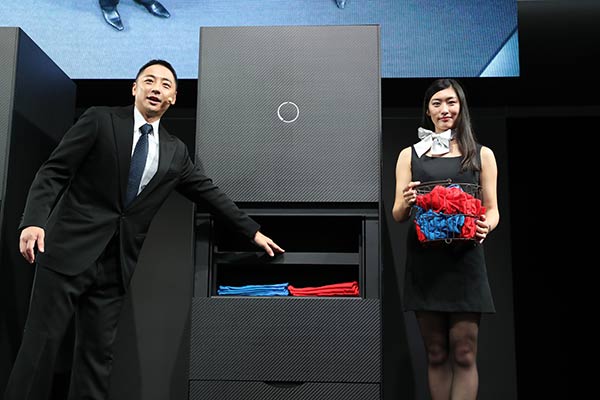 |
|
Seven Dreamers Laboratories Inc President Shinichi Sakane (left) displays the world's first automatic laundry folding machine, Laundroid 1, at eh CEATEC Japan in Chiba, Tokyo. [Photo/Agencies] |
Hate doing laundry? Shinichi Sakane has a solution.
The Japanese inventor has received 6 billion yen ($53 million) from partners, including Panasonic Corp, to advance "the Laundroid" - a robot Sakane is developing to not only wash and dry garments, but also to sort, fold and neatly arrange them.
The refrigerator-size device could eventually fill the roles of washing machine, dryer and clothes drawer in people's homes.
Sakane, whose earlier inventions include an anti-snoring device and golf clubs made of space materials, said the funding will bring closer his dream of liberating humanity from laundry.
Among his inspirations for the project is the 1968 Stanley Kubrick sci-fi classic 2001: A Space Odyssey. Laundroid was designed to resemble the mysterious objects in the film that brought technology to prehistoric humans, and the project was originally code-named Monolith.
"That's what we had in mind: a technology that never existed on Earth descends from space," the 45-year-old Sakane, head of Seven Dreamers Laboratories Inc, said at his Tokyo office. "If we could automate this, the act of doing laundry will be gone for good."
The funding round was one of the largest ever for a Japanese tech startup, according to CB Insights.
It brings total capital raised to 7.5 billion yen. Nomura Holdings Inc has been hired for an initial public offering in the "not too distant future", Sakane said, adding that Seven Dreamers Laboratories is valued at about 20 billion yen.
While the full product is slated for release in 2019, an early version that can only sort and fold clothing goes on sale worldwide in March.
Sakane wouldn't disclose details of how the robot works, but patents show that users are expected to dump clothes in a lower drawer.
From there, robotic arms grab each item while scanners look for unique features such as buttons or a collar. Once identified, the clothes are folded using sliding plates and neatly stacked on upper shelves for collection.
"We tried so many things and none of them worked," Sakane said. "A ton of team members quit, saying it's impossible or that I'm crazy. But the ones who remained came up with some truly brilliant ideas."
The goal is eventually to get the price of the full version to less than about 300,000 yen, he said. The model going on sale in March will probably cost significantly more due to higher initial production costs. Panasonic, a leading partner and investor in the project, is slated to handle manufacturing.
"We decided that by combining Panasonic's washing and drying machine technology and 7D's folding technology, it is possible to bring an all-in-one product to the market early," said Kyoko Ishii, a spokeswoman for Osaka-based Panasonic.
Users will still have to do some tasks, such as partially buttoning shirts, ensuring clothes aren't inside out, and bunching socks before putting them inside the machine, Sakane said. That's because even the best machine-learning applications can't help computers figure out how to fold a pair of socks.
Bloomberg


